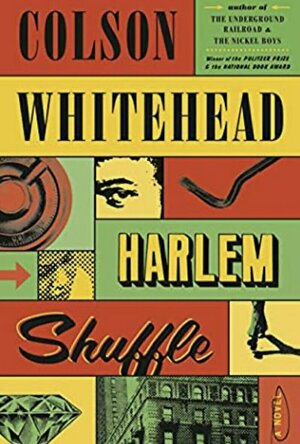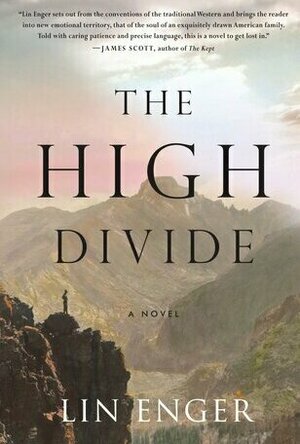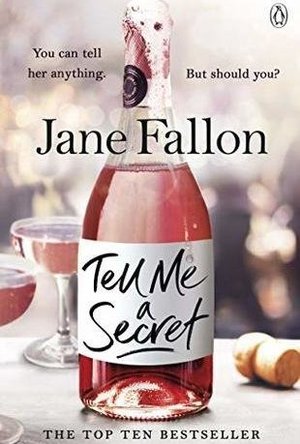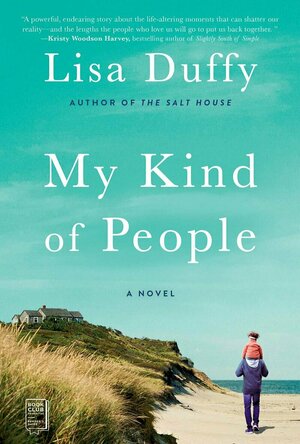Search
Search results
<i>This eBook was provided by the publisher via NetGalley in exchange for an honest</i>
People grieve in many different ways, as Shari Arnold shows in her young adult novel <i>Neverland</i>. It has been four months since seventeen-year-old Livy lost her little sister Jenna to leukemia. Her mother has become a workaholic, her father a ghost, but Livy has become determined to help as many sick children as she can, either by reading to them or becoming a bone marrow donor. Livy’s life revolves solely around the children at the hospital but things begin to change when she meets the mysterious Meyer who takes her out of her comfort zone and challenges her to have fun.
As suggested by the title, <i>Neverland</i> is based upon the well-known story of Peter Pan. Meyer, like Peter, loves an adventure and whisks Livy away to do things she would never have thought to do on her own. By showing Livy how to have fun, Meyer hopes to encourage her to move on, but the big question is, is Livy ready to live without her sister?
The first part of the book has a contemporary setting that makes the story appear to be the typical girl meets boy who makes everything better type of novel, however the second section is completely different. Part two is so full of fantasy and magical ideas that it feels like a completely different book. Initially it was exciting when Meyer was something of an enigma, but suddenly the story becomes childish and fake once his true identity has been revealed, thus making the novel less gripping.
Nonetheless, <i>Neverland</i> is very moving as is anything regarding the death of young children. Arnold provides an interesting retelling of the delightful fairytale giving a totally new meaning to the children who do not grow up. Those who enjoy contemporary and fantasy novels will enjoy both elements however some readers expecting a young adult love story may be disappointed with the unrealistic turn the novel takes part way through.
People grieve in many different ways, as Shari Arnold shows in her young adult novel <i>Neverland</i>. It has been four months since seventeen-year-old Livy lost her little sister Jenna to leukemia. Her mother has become a workaholic, her father a ghost, but Livy has become determined to help as many sick children as she can, either by reading to them or becoming a bone marrow donor. Livy’s life revolves solely around the children at the hospital but things begin to change when she meets the mysterious Meyer who takes her out of her comfort zone and challenges her to have fun.
As suggested by the title, <i>Neverland</i> is based upon the well-known story of Peter Pan. Meyer, like Peter, loves an adventure and whisks Livy away to do things she would never have thought to do on her own. By showing Livy how to have fun, Meyer hopes to encourage her to move on, but the big question is, is Livy ready to live without her sister?
The first part of the book has a contemporary setting that makes the story appear to be the typical girl meets boy who makes everything better type of novel, however the second section is completely different. Part two is so full of fantasy and magical ideas that it feels like a completely different book. Initially it was exciting when Meyer was something of an enigma, but suddenly the story becomes childish and fake once his true identity has been revealed, thus making the novel less gripping.
Nonetheless, <i>Neverland</i> is very moving as is anything regarding the death of young children. Arnold provides an interesting retelling of the delightful fairytale giving a totally new meaning to the children who do not grow up. Those who enjoy contemporary and fantasy novels will enjoy both elements however some readers expecting a young adult love story may be disappointed with the unrealistic turn the novel takes part way through.
Deborah (162 KP) rated Queen's Gambit in Books
Dec 21, 2018
This wasn't a bad début novel by any means and it seems that lots of people really enjoyed it. I didn't dislike it, I actually found it a pleasant read, but it was also fairly undemanding. You might want that from a book sometimes or you may want something a bit more challenging. It may be that there are so many historical novels out there and of these ones about the Tudors top the leaderboard by a mile, so for me, a Tudor historical novel needs to really outstandingly good to make it stand out from the crowd. I also read a fair bit of 'proper' history (i.e. non-fiction books), so perhaps I know too much for there to be any surprises awaiting me? I do tend to get riled by bizarre deviations from historical fact.
Anyway, the novel deals with part of the life of Katherine Parr, last wife of Henry VIII, starting with the death of her second husband and continuing just past her own demise. I suppose an historical novel will give the author more leeway to explain real events and there is a sort of expectation that a book should be a nice tidy package, explaining everything within its covers. I don't really feel that Fremantle does this with the Parr/Seymour relationship. It's not easy to see why an intelligent woman could be taken in by a man like this anyway, but in the book it was as if Katherine actually was attracted to him against her will, so the relationship never sat quite happily for me. The other main protagonist is a woman called Dorothy (Dot) Fownten, who acts very much as a maidservant to Katherine, and her stepdaughter, Meg Neville. I was interested to learn that Dot was a real historical character, but so little is known of her that Fremantle has had the liberty of embroidering her story.
As I said, not a bad book. Good if you want something fairly undemanding, such as a beach read. I suspect it will appeal to fans of Philippa Gregory and Alison Weir, but those who prefer Penman may find it a little lacking.
Anyway, the novel deals with part of the life of Katherine Parr, last wife of Henry VIII, starting with the death of her second husband and continuing just past her own demise. I suppose an historical novel will give the author more leeway to explain real events and there is a sort of expectation that a book should be a nice tidy package, explaining everything within its covers. I don't really feel that Fremantle does this with the Parr/Seymour relationship. It's not easy to see why an intelligent woman could be taken in by a man like this anyway, but in the book it was as if Katherine actually was attracted to him against her will, so the relationship never sat quite happily for me. The other main protagonist is a woman called Dorothy (Dot) Fownten, who acts very much as a maidservant to Katherine, and her stepdaughter, Meg Neville. I was interested to learn that Dot was a real historical character, but so little is known of her that Fremantle has had the liberty of embroidering her story.
As I said, not a bad book. Good if you want something fairly undemanding, such as a beach read. I suspect it will appeal to fans of Philippa Gregory and Alison Weir, but those who prefer Penman may find it a little lacking.
Veronica Pena (690 KP) rated To All the Boys I've Loved Before in Books
Jan 19, 2020
I have never in my life finished a book in one night and I read this entire novel in one sitting. As soon as I picked it up, I couldn't put it down. I love the way it was written, the characters, the plotline is so fresh, unlike anything else, this novel is amazing. I am seriously so shocked.
I think what makes this book so great is how real it is. I remember being 16, Lara Jean's age, and falling in love for the first time and what that felt like and how it kind of creeps up on you and then all at once, it just is there and it's all-consuming and this thing you can't run away from. I felt that in Lara Jean and Peter. I also think the hard part about writing a book as an adult that is about teenagers is that you can lose that feeling. You can forget what it feels like to be that age, to live in those moments, to have those feelings. I don't feel like that with this novel. It feels very real and very true. It's definitely a story that can take place in almost any time, which I really love. Obviously, if it was a pre-cell phone time, texting wouldn't be there, but other than that, it's definitely something that could hold up and I think those are the best stories.
I thoroughly enjoyed the movie when I saw it the first time and I'm eager to watch it again and compare it to the book, but I'm even more excited to read the second book in this trilogy and figure out where the story goes next. I've managed this far along without having any spoilers of what happens in the next 2 books and that I'm very proud of.
Overall, I really enjoyed this novel. I think it was beautifully written, it's the perfect ending, or cliffhanger rather, and I think it's a true story about high schoolers and not one that is so far removed, it's hard to relate. I hope the second book keeps me as hooked as this one did.
I think what makes this book so great is how real it is. I remember being 16, Lara Jean's age, and falling in love for the first time and what that felt like and how it kind of creeps up on you and then all at once, it just is there and it's all-consuming and this thing you can't run away from. I felt that in Lara Jean and Peter. I also think the hard part about writing a book as an adult that is about teenagers is that you can lose that feeling. You can forget what it feels like to be that age, to live in those moments, to have those feelings. I don't feel like that with this novel. It feels very real and very true. It's definitely a story that can take place in almost any time, which I really love. Obviously, if it was a pre-cell phone time, texting wouldn't be there, but other than that, it's definitely something that could hold up and I think those are the best stories.
I thoroughly enjoyed the movie when I saw it the first time and I'm eager to watch it again and compare it to the book, but I'm even more excited to read the second book in this trilogy and figure out where the story goes next. I've managed this far along without having any spoilers of what happens in the next 2 books and that I'm very proud of.
Overall, I really enjoyed this novel. I think it was beautifully written, it's the perfect ending, or cliffhanger rather, and I think it's a true story about high schoolers and not one that is so far removed, it's hard to relate. I hope the second book keeps me as hooked as this one did.

El Testimonio en la Pentagonia de Reinaldo Arenas
Book
Este libro presenta un analisis detallado de la Pentagonia de Reinaldo Arenas, que incluye las...
BookInspector (124 KP) rated The Art of Hiding in Books
Sep 24, 2020
3.5 stars
The main character in this book was Nina, a mother of two boys and a wife of a wealthy businessman. After her husband’s unexpected death, she finds out, that she was living in a bubble, and her husband left them bankrupt. Kicked out of her beautiful home and with pennies in her pocket, she needs to find out the way to survive.
I really liked Nina as a protagonist in this novel. I really liked her strength and her relationship with her boys. She had huge changes to endure, but I think she handled the situation pretty great. This novel was mostly told from Nina’s perspective, sometimes throwing in other character’s thoughts. My least favourite was Nina’s older son, I do understand he is a teenage boy, but a little bit of understanding and common sense from his part would’ve saved Nina so much stress. :S But again, what do I know about kids.
The narrative of this book was very absorbing to me, I was very intrigued of where the life will take Nina and her boys. There was so much loss, that it was really heartbreaking to see them struggling so much. I really enjoyed the topics which author has discussed, such as family relationships; the differences between being poor and rich, and how it affects people; use of survival skills after they were subdued for a very long time, and many more. Even though the story was engrossing, some parts were pretty repetitive for me, and that made my interest drop until a turn or surprise came along.
This novel is very well written and the language used was very easy and pleasant to read. It has decent chapter length which was divided into smaller parts as well, so the book didn’t drag to me. The ending of this novel rounded this story pretty well and left me satisfied with the outcome. So, to conclude, I enjoyed this story, filled with life-changing events and pretty strong characters. I did admire Nina and her life journey, and I do recommend to give this book a try, it has great life lessons to offer.
The main character in this book was Nina, a mother of two boys and a wife of a wealthy businessman. After her husband’s unexpected death, she finds out, that she was living in a bubble, and her husband left them bankrupt. Kicked out of her beautiful home and with pennies in her pocket, she needs to find out the way to survive.
I really liked Nina as a protagonist in this novel. I really liked her strength and her relationship with her boys. She had huge changes to endure, but I think she handled the situation pretty great. This novel was mostly told from Nina’s perspective, sometimes throwing in other character’s thoughts. My least favourite was Nina’s older son, I do understand he is a teenage boy, but a little bit of understanding and common sense from his part would’ve saved Nina so much stress. :S But again, what do I know about kids.
The narrative of this book was very absorbing to me, I was very intrigued of where the life will take Nina and her boys. There was so much loss, that it was really heartbreaking to see them struggling so much. I really enjoyed the topics which author has discussed, such as family relationships; the differences between being poor and rich, and how it affects people; use of survival skills after they were subdued for a very long time, and many more. Even though the story was engrossing, some parts were pretty repetitive for me, and that made my interest drop until a turn or surprise came along.
This novel is very well written and the language used was very easy and pleasant to read. It has decent chapter length which was divided into smaller parts as well, so the book didn’t drag to me. The ending of this novel rounded this story pretty well and left me satisfied with the outcome. So, to conclude, I enjoyed this story, filled with life-changing events and pretty strong characters. I did admire Nina and her life journey, and I do recommend to give this book a try, it has great life lessons to offer.
BookInspector (124 KP) rated Tell Me a Secret in Books
Sep 24, 2020
The protagonist in this story is Holly, a woman in her forties, who got promoted in her job on a TV show. I really like that the author utilizes her knowledge of the film industry throughout her books. I really like reading about “behind the scenes” of film making. This story was a little different than the previous books I read, first of all, there is no man involved in this story, and secondly, it is told from a single (Holly’s) perspective. Even though a single perspective was sufficient to get into the novel, I always liked that Jane Fallon incorporated rivals thoughts as well.
I liked the way the author chose her characters, they were different, interesting and in a way, mysterious. I really liked that the reader can get to know them better throughout the book. Holly was a sweet character, sharing her life story as well as the present events, but she lacked the “revenge” spirit. There were so many juicy discoveries, but Holly didn’t use them, and that was a shame. I loved the twists and turns in this novel, the pages just fly by while reading this book. One thing that truly surprises me is the number of alcoholic drinks the characters consume. How can they even function after downing bottles of wine? The topic discussed in this book is “being a single mother when you get pregnant at a very young age”. Holly’s story is inspirational and I liked that the author outlined the difficulties it can bring.
As I mentioned before, Jane Fallon is a master of what she does, and she definitely knows how to keep a reader “glued” to her book. The language used is easy to understand and the decent chapter length made this novel a very enjoyable read. The ending rounded up the novel very nicely and left me satisfied with an outcome. So, to conclude, Jane Fallon always provides intriguing stories with clever and believable characters, and the plot is filled with office rivalry as well as unexpected discoveries. I really enjoyed this book, and I will definitely recommend it to everybody. Enjoy!
I liked the way the author chose her characters, they were different, interesting and in a way, mysterious. I really liked that the reader can get to know them better throughout the book. Holly was a sweet character, sharing her life story as well as the present events, but she lacked the “revenge” spirit. There were so many juicy discoveries, but Holly didn’t use them, and that was a shame. I loved the twists and turns in this novel, the pages just fly by while reading this book. One thing that truly surprises me is the number of alcoholic drinks the characters consume. How can they even function after downing bottles of wine? The topic discussed in this book is “being a single mother when you get pregnant at a very young age”. Holly’s story is inspirational and I liked that the author outlined the difficulties it can bring.
As I mentioned before, Jane Fallon is a master of what she does, and she definitely knows how to keep a reader “glued” to her book. The language used is easy to understand and the decent chapter length made this novel a very enjoyable read. The ending rounded up the novel very nicely and left me satisfied with an outcome. So, to conclude, Jane Fallon always provides intriguing stories with clever and believable characters, and the plot is filled with office rivalry as well as unexpected discoveries. I really enjoyed this book, and I will definitely recommend it to everybody. Enjoy!
Lottie disney bookworm (1056 KP) rated Slumber in Books
Sep 9, 2019
Thank you to NetGalley and Becky Bird for providing an e-copy of Slumber in exchange for an honest opinion.
Everyone knows that the market for fairy tale retellings is hot right now and, as such, is becoming saturated. However, Becky Bird comes at the story of Sleeping Beauty from a completely different angle: what if “true love’s kiss” which breaks the spell isn’t that between the Prince and Princess?
Slumber was a slow burner for me personally. Initially I agreed with previous reviews that the novel would be considered middle-grade rather than YA but my opinion did change about half way through the book. In my opinion, this was when the author ‘settled in’ to the novel and truly developed the characters into ones the reader could relate to and find themselves rooting for.
This was also the point where it became clear Becky Bird was challenging a number of stereotypes through her characters: the Cardinal is a man of God but this does not necessarily make him good; Lucy is an orphan but this does not make her weak; Jack is a boy but this does not make him brave and, finally, Thomas is a Prince but this does not make him charming! This humanised the characters for me and I found myself growing to really like them.
There are also a number of tongue-in-cheek references to fairy tales which I really appreciated. Phrases such as “bibbidi-bobbidi-boo” and Jack running for the trees every chance he got added an undercurrent of humour throughout the novel.
Unfortunately, there were moments where I got frustrated by the novel skipping between locations and characters- sometimes mid-event. Separating these by chapters or even page breaks would have made this an easier read. The start of the book especially also seemed to be a tad “over written” with references to a literal river of tears and a croissant described as a “creamy delight”.
Overall Slumber was a quick and easy read with a really great concept and endearing characters. It possibly could have benefitted from some suspense as all the Cardinal’s motives were revealed right at the start of the book but nevertheless it was an enjoyable read.
Everyone knows that the market for fairy tale retellings is hot right now and, as such, is becoming saturated. However, Becky Bird comes at the story of Sleeping Beauty from a completely different angle: what if “true love’s kiss” which breaks the spell isn’t that between the Prince and Princess?
Slumber was a slow burner for me personally. Initially I agreed with previous reviews that the novel would be considered middle-grade rather than YA but my opinion did change about half way through the book. In my opinion, this was when the author ‘settled in’ to the novel and truly developed the characters into ones the reader could relate to and find themselves rooting for.
This was also the point where it became clear Becky Bird was challenging a number of stereotypes through her characters: the Cardinal is a man of God but this does not necessarily make him good; Lucy is an orphan but this does not make her weak; Jack is a boy but this does not make him brave and, finally, Thomas is a Prince but this does not make him charming! This humanised the characters for me and I found myself growing to really like them.
There are also a number of tongue-in-cheek references to fairy tales which I really appreciated. Phrases such as “bibbidi-bobbidi-boo” and Jack running for the trees every chance he got added an undercurrent of humour throughout the novel.
Unfortunately, there were moments where I got frustrated by the novel skipping between locations and characters- sometimes mid-event. Separating these by chapters or even page breaks would have made this an easier read. The start of the book especially also seemed to be a tad “over written” with references to a literal river of tears and a croissant described as a “creamy delight”.
Overall Slumber was a quick and easy read with a really great concept and endearing characters. It possibly could have benefitted from some suspense as all the Cardinal’s motives were revealed right at the start of the book but nevertheless it was an enjoyable read.
Kristy H (1252 KP) rated My Kind Of People in Books
May 21, 2020
This novel cemented Duffy as one of my absolute favorite writers. This is a lovely and touching read, bringing to life the group of islanders who come together to care for Sky. Duffy builds her worlds so perfectly: I was lost on Ichabod Island with these characters--all of whom are so uniquely them. This book will go straight to your heart.
I fell immediately for sweet Sky. We learn that Brian and Ann are Sky's adoptive parents, so she's basically been orphaned twice. She is troubled as her parents were fighting a lot right before they died--going against the town view of them as the "perfect couple." While this novel is mostly a deep dive into its characters, there is a touch of mystery here. Why were Sky's parents fighting, and did it have anything to do with the car crash that caused their death? Also, a mysterious woman arrives in town--what is her role to play in the story? Duffy weaves together all of these plot points so well; I was captivated by the book and even though I wanted to slow down and savor it, I also wanted to know what had happened, to find out what would happen to Sky and Leo.
"A fearless girl who doesn't just think she's safe alone in the dark on an island in the Atlantic. She knows it."
I love that Duffy included a gay couple in her novel--and treats them like regular people. Leo is a wonderful character: complex and struggling with new parenthood. In the end, you feel like you know the entire neighborhood block, from sweet Joe; to Maggie, who is coming into her own in her '50s; to longtime resident Agnes, who is set in her ways; to Sky's tough best friend Frankie; and Sky's newly found grandmother, Lillian. All of these characters play a real role in this story: not an easy feat when the focus is on Leo and Sky.
Overall, this is a wonderfully written novel that covers family, marriage, tragedy, love, and so much more. Duffy's characters are beautiful, and she has an amazing way of bringing you right into the world she has created. I will always read anything she writes. 4.5 stars.
I fell immediately for sweet Sky. We learn that Brian and Ann are Sky's adoptive parents, so she's basically been orphaned twice. She is troubled as her parents were fighting a lot right before they died--going against the town view of them as the "perfect couple." While this novel is mostly a deep dive into its characters, there is a touch of mystery here. Why were Sky's parents fighting, and did it have anything to do with the car crash that caused their death? Also, a mysterious woman arrives in town--what is her role to play in the story? Duffy weaves together all of these plot points so well; I was captivated by the book and even though I wanted to slow down and savor it, I also wanted to know what had happened, to find out what would happen to Sky and Leo.
"A fearless girl who doesn't just think she's safe alone in the dark on an island in the Atlantic. She knows it."
I love that Duffy included a gay couple in her novel--and treats them like regular people. Leo is a wonderful character: complex and struggling with new parenthood. In the end, you feel like you know the entire neighborhood block, from sweet Joe; to Maggie, who is coming into her own in her '50s; to longtime resident Agnes, who is set in her ways; to Sky's tough best friend Frankie; and Sky's newly found grandmother, Lillian. All of these characters play a real role in this story: not an easy feat when the focus is on Leo and Sky.
Overall, this is a wonderfully written novel that covers family, marriage, tragedy, love, and so much more. Duffy's characters are beautiful, and she has an amazing way of bringing you right into the world she has created. I will always read anything she writes. 4.5 stars.

Harlem Shuffle
Book
From the two-time Pulitzer Prize-winning author of The Underground Railroad and The Nickel Boys, a...

The High Divide
Book
“A deeply moving, gripping novel about one man’s quest for redemption and his family’s...
Historical Fiction






